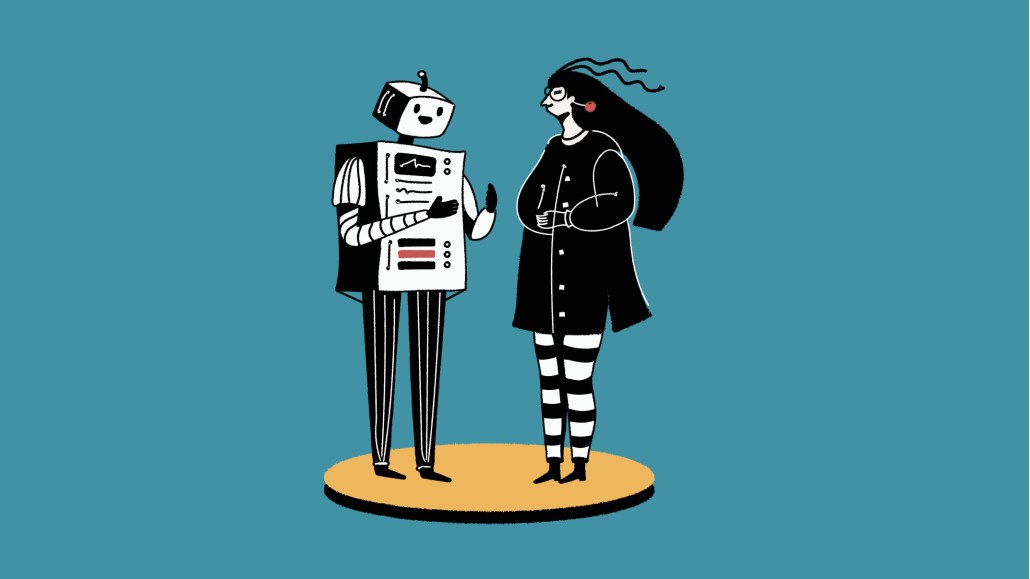Secure your place at the Digiday Media Buying Summit in Nashville, March 2-4
Salesforce finds AI co-workers are officially here and people are OK with it

This story was first published by Digiday sibling WorkLife
We are entering the era of the autonomous AI workplace. In other words, some of us officially have AI co-workers.
Autonomous AI is a branch of AI in which systems and tools are advanced enough to act with limited human oversight and involvement. That means that as we continue to use more AI tools and delegate work to bots, they will become workers themselves and end up being self-sufficient in many ways. They are AI agents, that interact with their environment, collect data, and use the data to perform self-determined tasks to meet predetermined goals.
Salesforce released new research this week on how nearly 6,000 global workers feel about an autonomous AI future. Surprisingly, most workers (77%) say that they will eventually trust a fully AI-powered future. Right now, 10% of global workers trust AI to operate autonomously, 26% will trust AI to operate autonomously in less than three years, and 41% in three or more years.
“We’re already really excited about what this can unlock,” said Paula Goldman, Salesforce’s chief ethical and humane use officer, at a press briefing. “We believe the key to getting to AI agents successfully and where it can operate, where you set it, let it go, and inspect it after, is really this thoughtful design of combining the best of human and machine intelligence for this era.”
The top three tasks that workers trust AI to do autonomously are write code, uncover data insights, and provide internal or external communications. Whereas the tasks humans are still responsible for include driving inclusivity, onboarding and training employees, and keeping data safe.
WorkLife reported in February that people are sending their AI assistants to meetings, leaving co-workers to wonder how much it will impact work relationships.
However, the research also found that while workers already trust AI to do almost half (43%) of their work tasks, there are some things that they would never delegate to AI.
“If we want people to trust and adopt technology, we need to enable people to use it successfully,” said Goldman. “This research shows us that knowledge and training can go a long way. As businesses, we need to lean into that.”
To read the full story click here
More in Marketing

Future of Marketing Briefing: AI’s branding problem is why marketers keep it off the label
The reputational downside is clearer than the branding upside, which makes discretion the safer strategy.

While holdcos build ‘death stars of content,’ indie creative agencies take alternative routes
Indie agencies and the holding company sector were once bound together. The Super Bowl and WPP’s latest remodeling plans show they’re heading in different directions.

How Boll & Branch leverages AI for operational and creative tasks
Boll & Branch first and foremost uses AI to manage workflows across teams.








